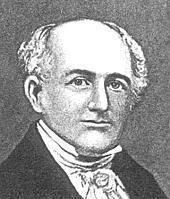
1774 - 1844 Author of "The solemn facts, which nature speaks" Kneeland, Abner, born in 1774, was noted for his religious changes, most of which may be traced through his hymns. He contributed 147 pieces to the American Universalist's Hymns composed by different Authors, 1808; and also edited The Philadelphia Hymn Book, 1819, and Hymns for the Use of those who are Slaves to no Sect, in 1834. In 1836 he underwent a trial at Boston for blasphemy. He died in 1844.
--John Julian, Dictionary of Hymnology, Appendix, Part II (190
==============================
Kneeland, Rev. Abner. (Iowa, 1774--1844, Salubria, Iowa). A Universalist miniter, one of the editors of the collection Hymns composed by different Authors, by order of the General Convention of Universalists of the New England States, 1808, to which he contributed 138 hymns, of poor quality. He resigned from the Universalist ministry in 1829 and became lecturer to a society of Freethinkers in Boston, and began publication of a periodical called the Investigator. In 1833 he was indicted on a charge of blasphemy and served a prison sentence. On his release he returned to Iowa, then a territory, and established a free-thinking colony which he called Salubria. His hymn beginning "Mediator, Son of God" is included in Church Harmonies: New and Old, 1895.
--Henry Wilder Foote, DNAH Archives
Abner Kneeland


 My Starred Hymns
My Starred Hymns



